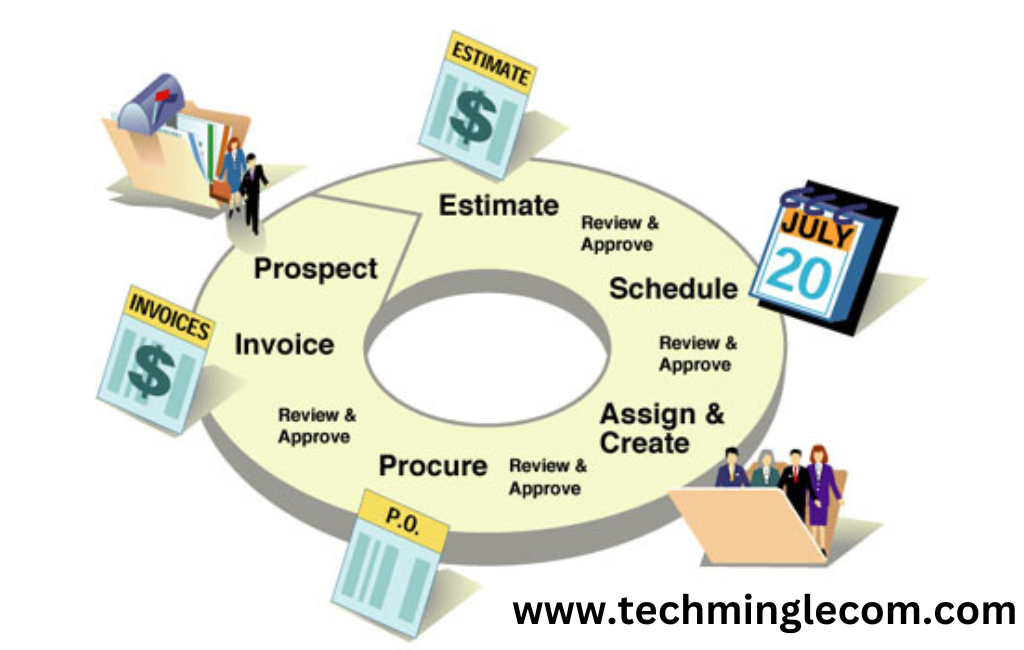
Master Degree in Project Management:100%
Introduction to Master Degree in Project Management
In today’s fast-paced business world, effective Project Management is crucial for the success of any organization. Whether it’s launching a new product, implementing a major IT system, or overseeing a large-scale construction project, skilled project managers ensure that projects are completed on time, within scope, and on budget. This is where a Master Degree in Project Management comes into play, equipping professionals with the knowledge and skills necessary to excel in this demanding field.
What is a Master’s Degree in Project Management?
Definition and Scope
A Master Degree in Project Management is a specialized graduate program designed to provide in-depth knowledge and expertise in managing projects across various industries. The curriculum typically covers a range of topics, including project planning, risk management, cost control, and quality assurance. This degree prepares students to handle complex projects and lead diverse teams effectively.
Difference from Other Management Degrees
Unlike general management degrees such as an MBA, a Master Degree in Project Management focuses specifically on the methodologies and practices essential for successful project execution. While an MBA provides a broad understanding of business operations, a Master Degree in Project Management hones in on the skills needed to plan, execute, and close projects efficiently.
Advantages of Earning a Master Degree in Project Management

Career Advancement
One of the primary benefits of earning a Master Degree in Project Management is the potential for career advancement. Graduates are often considered for senior roles such as Project Manager, Program Manager, or Director of Project Management, which come with increased responsibilities and higher salaries.
Skill Enhancement
The program enhances a variety of skills, including leadership, strategic thinking, and problem-solving. Students learn to manage resources, communicate effectively with stakeholders, and mitigate risks, making them valuable assets to any organization.
Industry Demand
There is a growing demand for skilled project managers in various industries, including IT, healthcare, construction, and finance. This degree helps meet that demand by preparing professionals who can handle the complexities of modern projects.
Core Subjects and Curriculum

Project Planning and Scheduling
This subject covers the essential techniques for planning and scheduling projects. Students learn how to develop project timelines, allocate resources, and ensure that project milestones are met.
Risk Management
Risk management plays a crucial role in project management.This course teaches students how to identify potential risks, assess their impact, and develop strategies to mitigate them.
Cost Management
Effective cost management ensures that projects are completed within budget. Students learn about budgeting, financial planning, and cost control techniques.
Quality Management
Quality management focuses on ensuring that project outcomes meet the required standards and stakeholder expectations. This subject covers quality planning, assurance, and control.
Specializations within Project Management
Project management is a diverse field encompassing various specializations, each catering to specific industries, methodologies, and aspects of project execution. Understanding these specializations can help professionals focus their skills and knowledge on areas that align with their interests and career goals. Here are some key specializations within project management:

Waterfall Project Management
Waterfall project management adheres to a conventional method that follows a linear and sequential process.Each phase must be completed before moving on to the next, making it suitable for projects with well-defined requirements and deliverables. It is commonly employed in construction, manufacturing, and engineering projects.
Construction Project Management
This specialization focuses on the planning, coordination, and execution of construction projects. It involves managing budgets, schedules, resources, and compliance with building codes and regulations. Construction project managers work closely with architects, engineers, and contractors to ensure successful project completion.
IT Project Management
IT project management involves overseeing projects related to information technology, such as software development, network upgrades, and system implementations. IT project managers need to have a strong understanding of technology and be able to communicate effectively with both technical and non-technical stakeholders.
Healthcare Project Management
Healthcare project management deals with projects within the healthcare sector, including hospital expansions, the implementation of health information systems, and process improvement initiatives. This specialization requires knowledge of healthcare regulations, patient care standards, and medical technologies.
Financial Project Management
Financial project management focuses on projects related to financial services, such as banking, insurance, and investment management. This role involves managing budgets, financial analysis, risk assessment, and ensuring compliance with financial regulations.
Marketing Project Management
Marketing project management involves planning and executing marketing campaigns, product launches, and promotional events. Marketing project managers coordinate with creative teams, manage budgets, and track the performance of marketing initiatives to ensure they meet business objectives.
Event Project Management
Event project management is about organizing and managing events, such as conferences, trade shows, and corporate meetings. This specialization requires skills in logistics, vendor management, budgeting, and ensuring a seamless experience for attendees.
Environmental Project Management
Environmental project management focuses on projects aimed at environmental conservation, sustainability, and compliance with environmental regulations. Projects may include pollution control, renewable energy installations, and habitat restoration efforts.
Risk Management
Risk management is a critical aspect of project management that involves identifying, assessing, and mitigating risks that could impact project success. This specialization requires analytical skills, strategic planning, and the ability to develop contingency plans.
Procurement Project Management
Procurement project management involves managing the acquisition of goods and services required for project execution. This includes vendor selection, contract negotiation, and ensuring timely delivery of materials within budget constraints.
Quality Management
Quality management aims to ensure that project deliverables adhere to established quality standards.This specialization involves quality planning, quality assurance, and quality control activities to ensure customer satisfaction and project success.
Top Universities Offering Master’s in Project Management

University A
University A is renowned for its comprehensive project management program, offering a blend of theoretical knowledge and practical experience.
University B
University B provides an innovative curriculum with a strong focus on real-world applications and hands-on learning opportunities.
University C
University C is known for its experienced faculty and strong industry connections, providing students with valuable networking opportunities.
Admission Requirements

Academic Qualifications
Most programs typically mandate a bachelor’s degree in a related field as a prerequisite.Some universities may also require specific coursework in business or management.
Professional Experience
Many programs favor candidates who possess professional experience in project -management or a related field.This experience helps students apply theoretical concepts to practical situations.
Entrance Exams
Certain universities might necessitate standardized test scores like the GRE or GMAT during the admission procedure.
Online vs. On-Campus Programs
Advantages of Online Programs
Online programs provide flexibility, enabling students to manage their studies alongside work and personal commitments.They are ideal for working professionals who cannot attend on-campus classes.
Advantages of On-Campus Programs
On-campus programs provide face-to-face interaction with faculty and peers, offering a more immersive learning experience. They also offer access to campus facilities and resources.
Career Opportunities after Graduation
Job Roles and Titles
Graduates can pursue various roles, including Project Manager, Program Manager, Operations Manager, and Project Coordinator.
Potential Employers
Potential employers include large corporations, government agencies, non-profits, and consulting firms. Industries such as IT, construction, healthcare, and finance are particularly in need of skilled project managers.
Salary Expectations
Project -management professionals’ salaries can vary significantly depending on the industry and geographic location.However, graduates with a Master’s in Project -Management can expect competitive salaries, often exceeding the national average.
Certifications and Further Education
PMP Certification
The Project -Management Professional (PMP) certification holds high esteem within the industry, showcasing advanced expertise and dedication to the profession.
Other Relevant Certifications
Other certifications, such as the Certified ScrumMaster (CSM) or PRINCE2, can also enhance a project manager’s credentials and career prospects.
Challenges in Pursuing a Master’s Degree in Project Management
Time Management
Managing coursework alongside professional and personal responsibilities can pose a challenge.Effective time management is crucial for success in the program.
Financial Considerations
Graduate programs can be expensive, and students must consider tuition costs, fees, and potential lost income if they choose to study full-time.
Balancing Work and Study
Many students pursue their degree while working full-time, which requires careful planning and discipline to manage both responsibilities effectively.
Success Stories and Testimonials
Alumni Achievements
Many alumni have gone on to achieve significant success in their careers, holding senior positions in leading organizations.
Case Studies
Case studies of successful projects managed by program graduates can provide insights into the practical application of the skills learned during the program.
Future Trends in Project Management
Technological Advancements
Advances in technology, such as AI and project -management software, are transforming the field. Staying updated with these trends is essential for future project managers.
Evolving Industry Needs
As industries evolve, the skills and knowledge required for effective project- management also change.Managing coursework alongside professional and personal responsibilities can pose a challenge.
Conclusion
In conclusion, a Master’s Degree in Project- Management offers a pathway to a rewarding and dynamic career. It equips professionals with the skills needed to manage complex projects and lead teams effectively. With the growing demand for skilled project managers across various industries, this degree can open doors to numerous career opportunities.
FAQs
What is the duration of a Master Degree in Project Management?
The duration typically ranges from 1 to 2 years, depending on the program and whether it is pursued full-time or part-time.
Can I pursue this degree while working full-time?
Yes, many programs offer flexible scheduling options, including online courses, to accommodate working professionals.
What is the average cost of the program?
The cost can vary widely depending on the institution and
Are there scholarships available?
Yes, many universities offer scholarships, grants, and financial aid options for eligible students.
What career opportunities await graduates after completing the degree?
Job prospects are generally favorable, with opportunities available in various industries, including IT, construction, healthcare, and finance.


